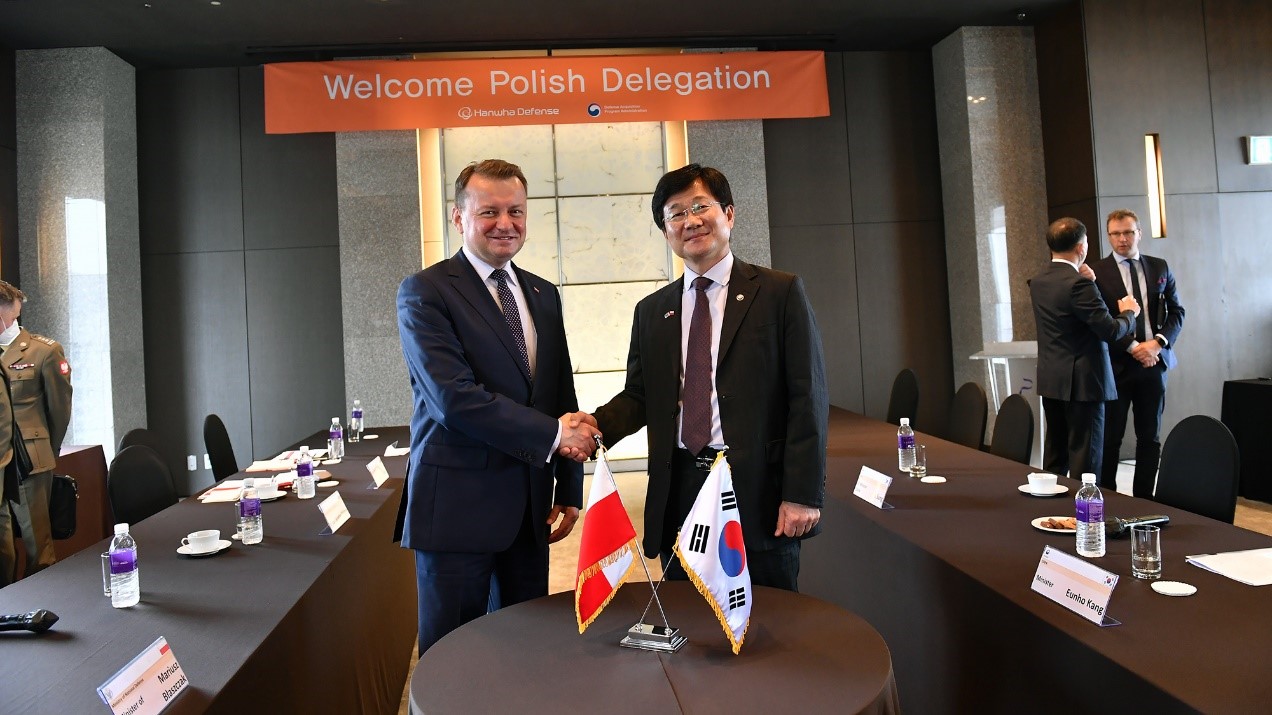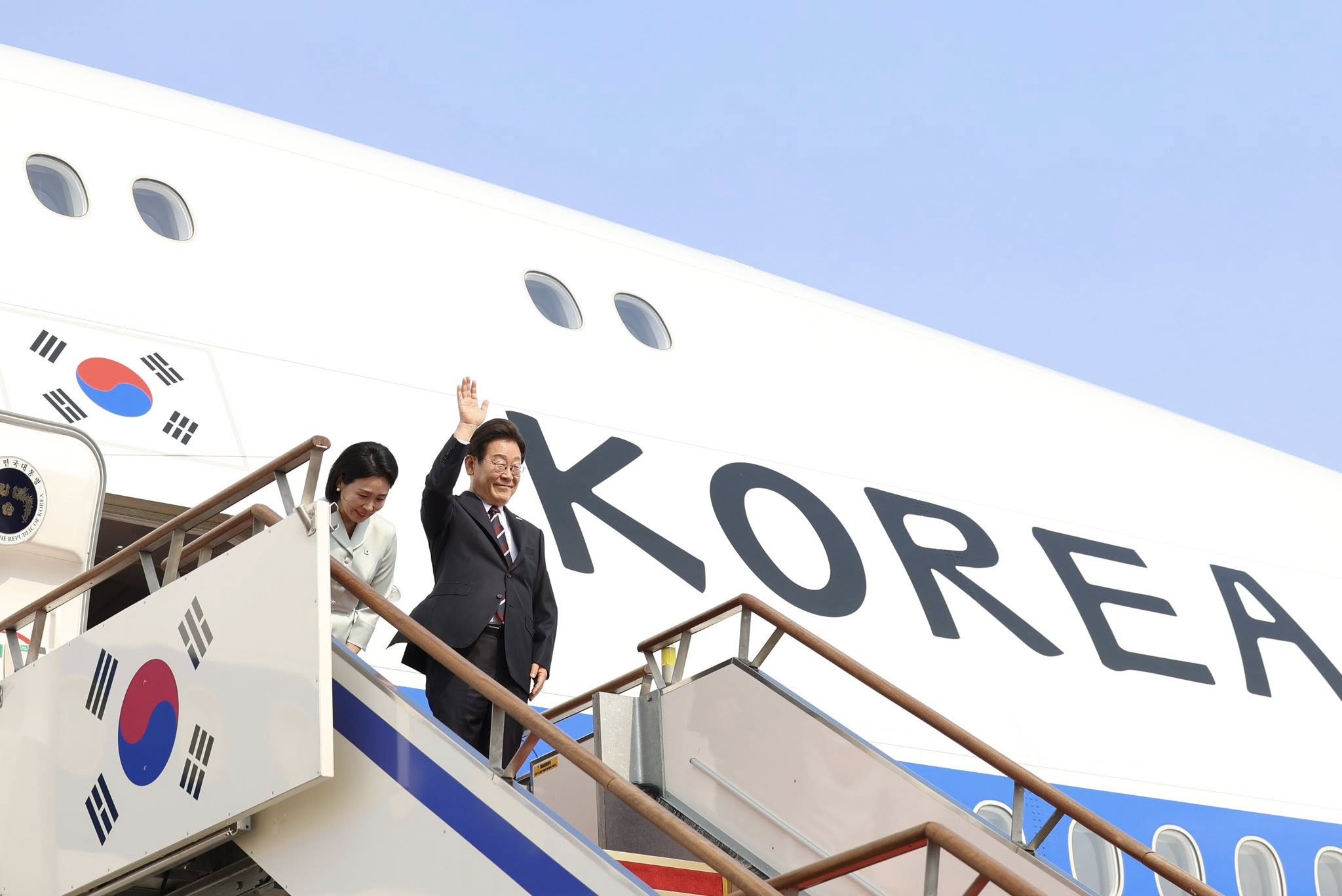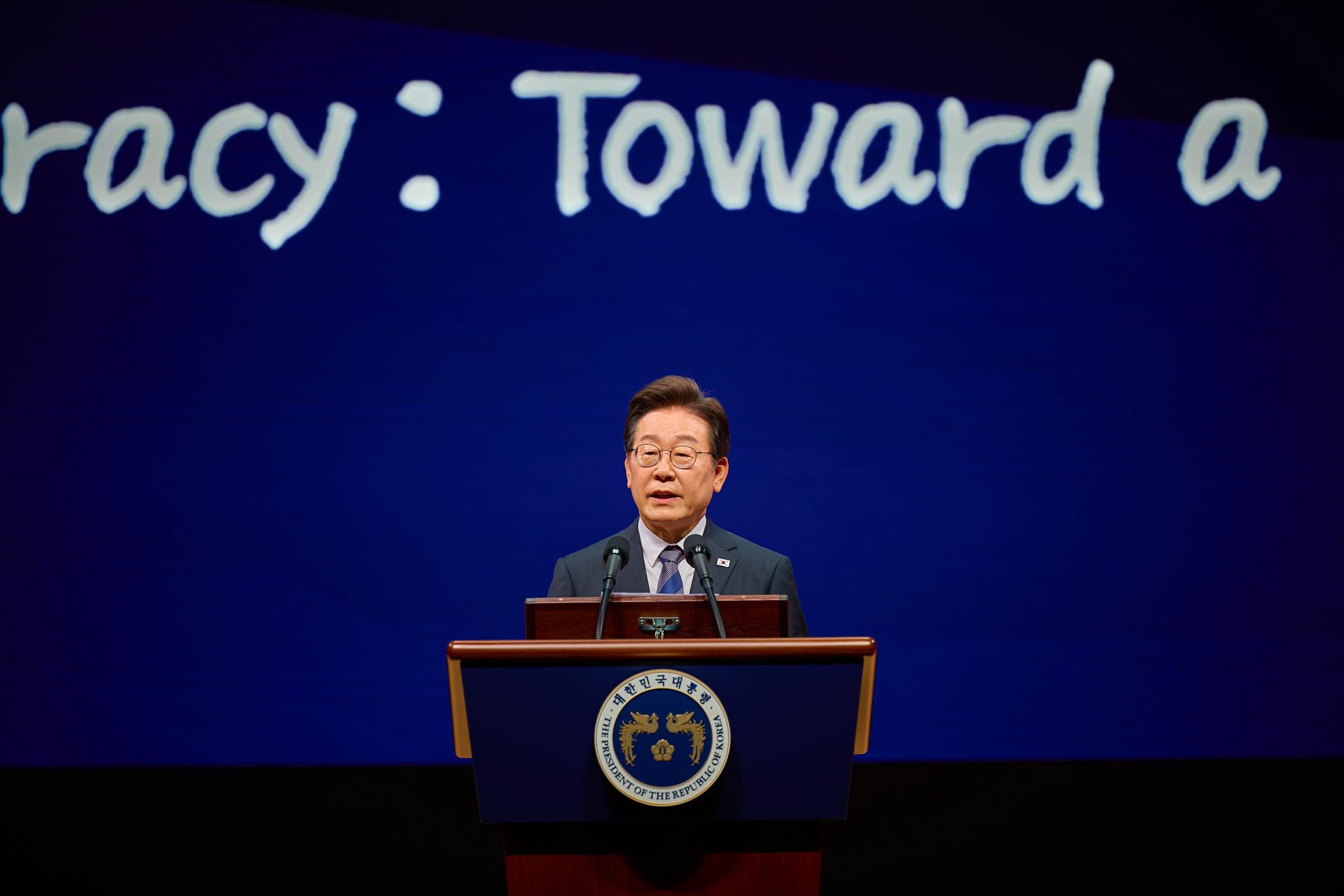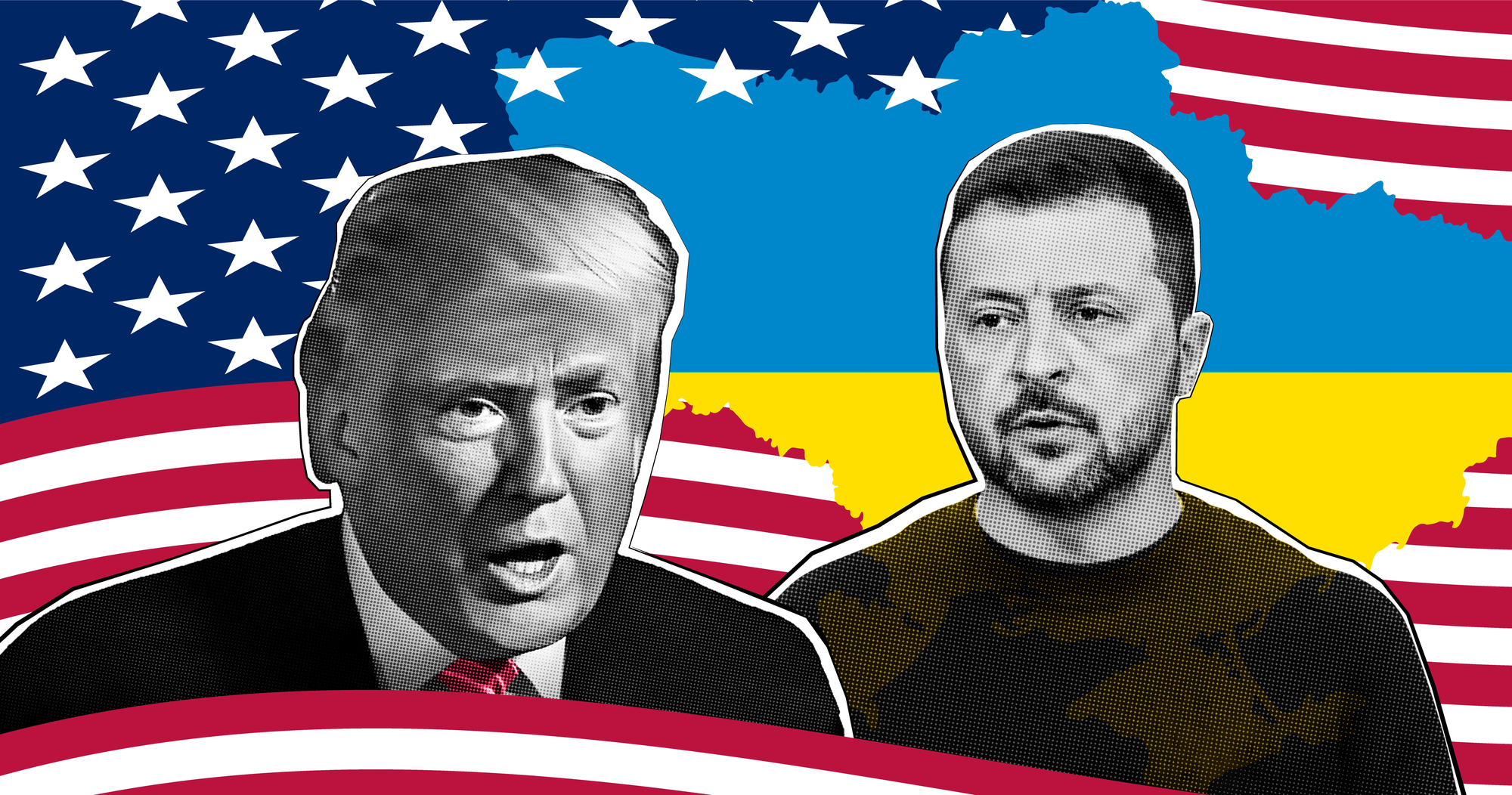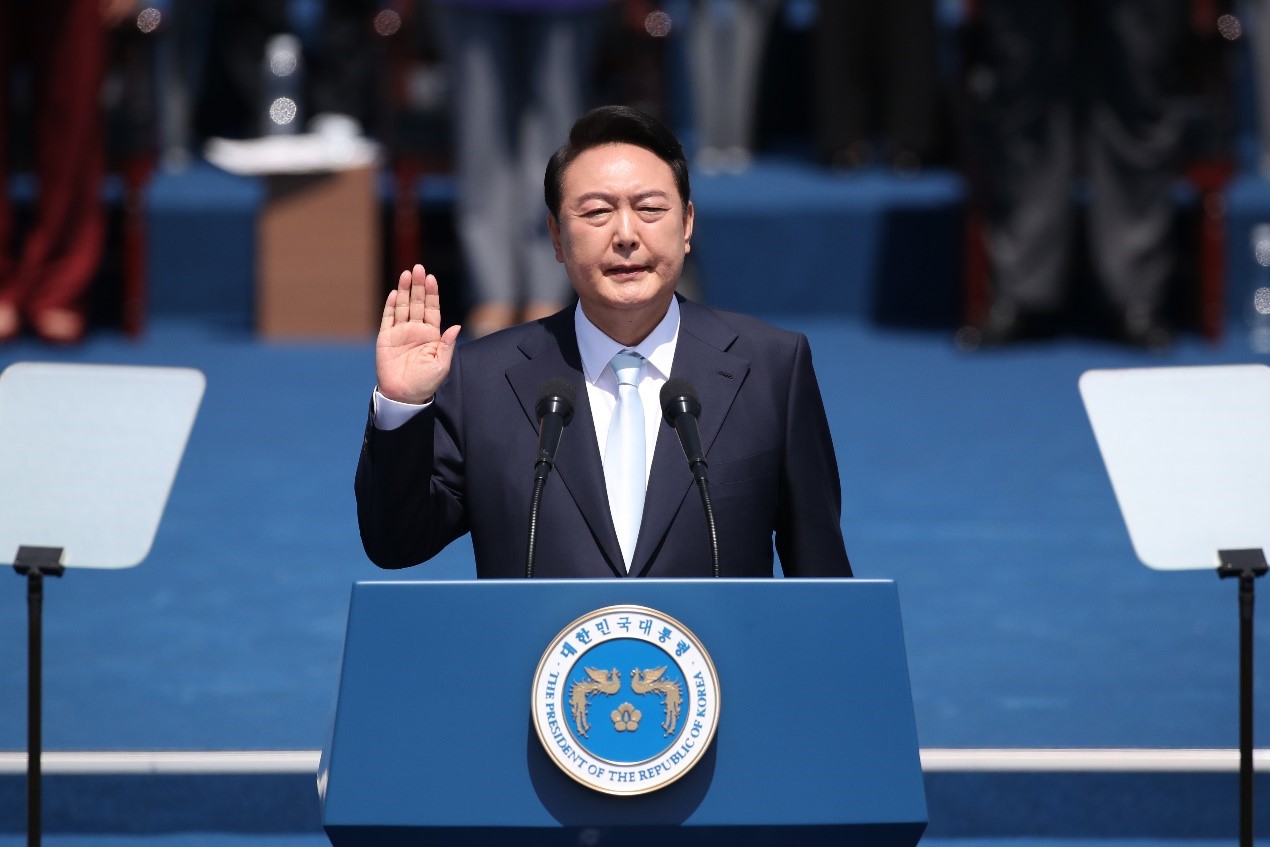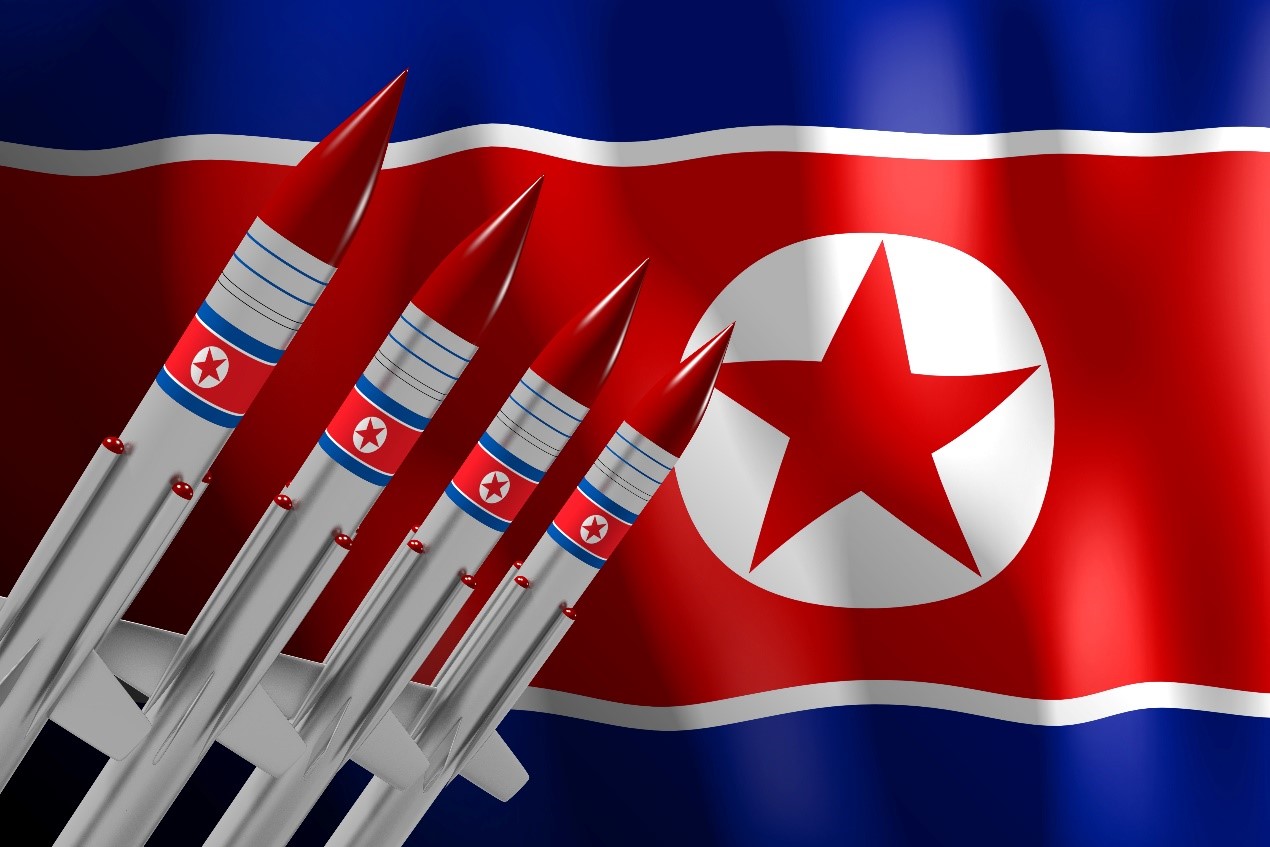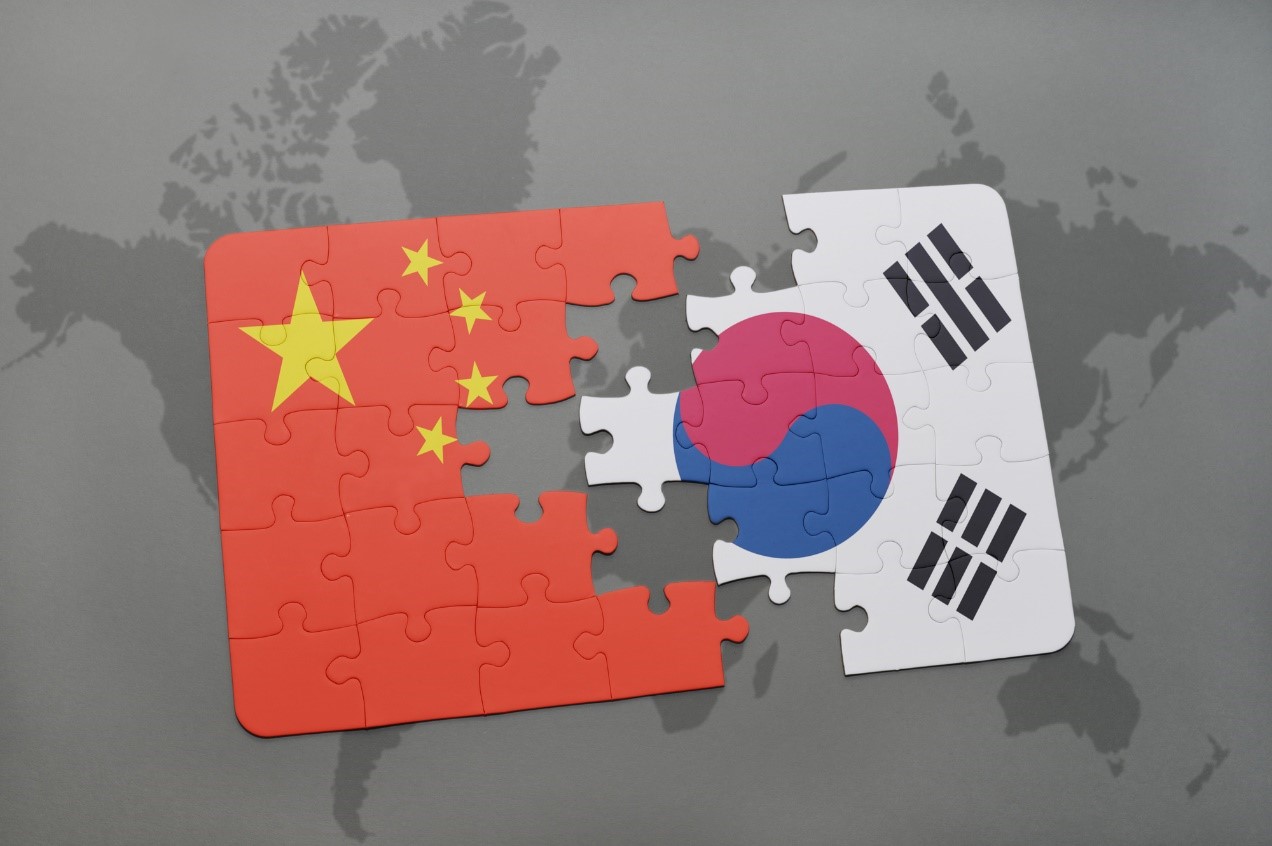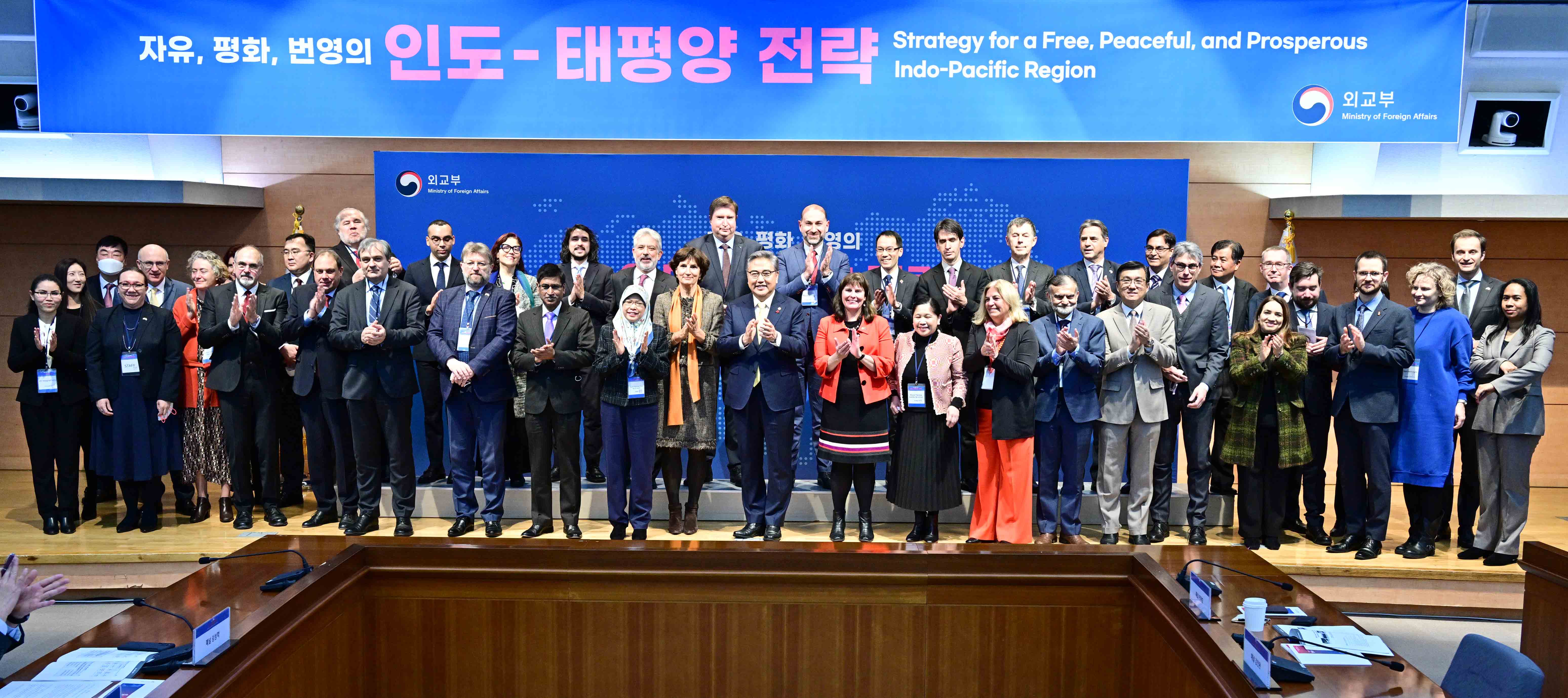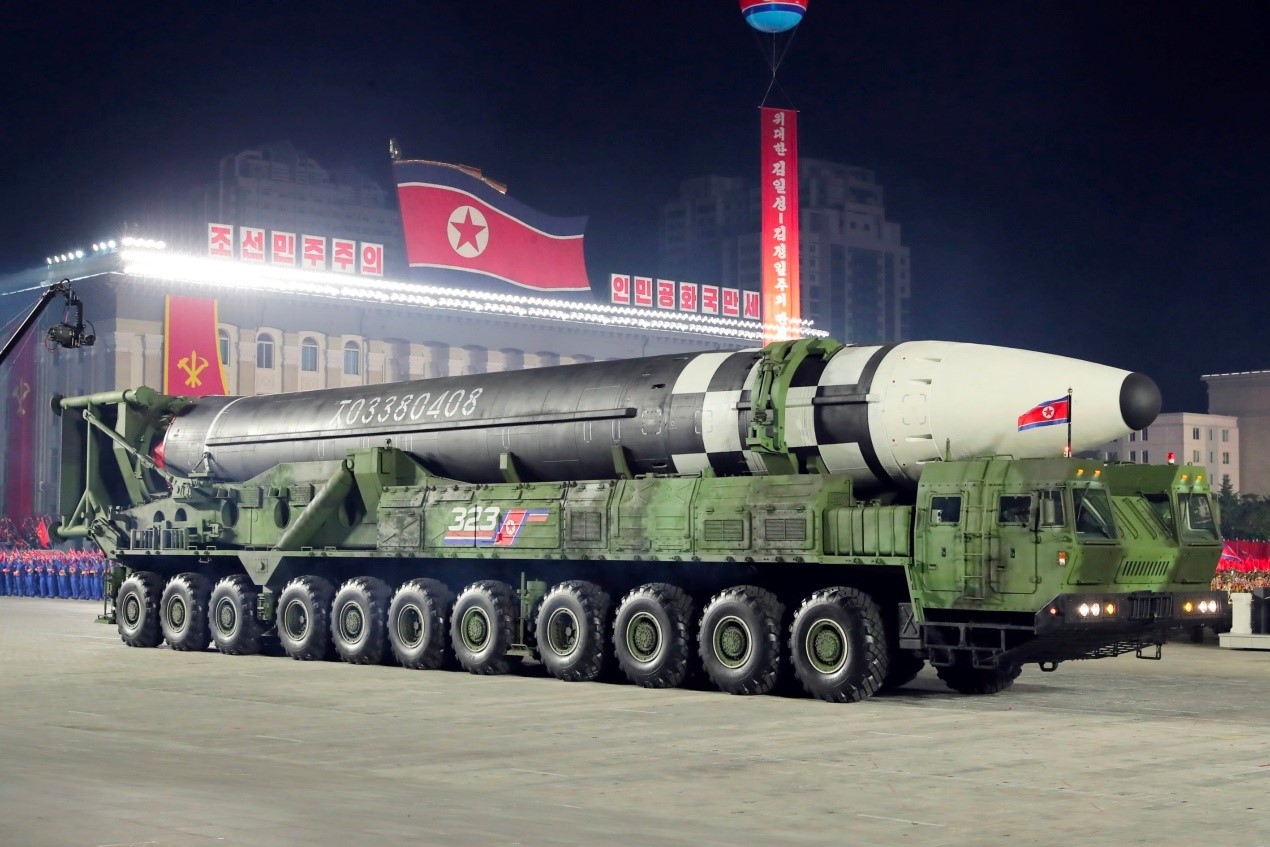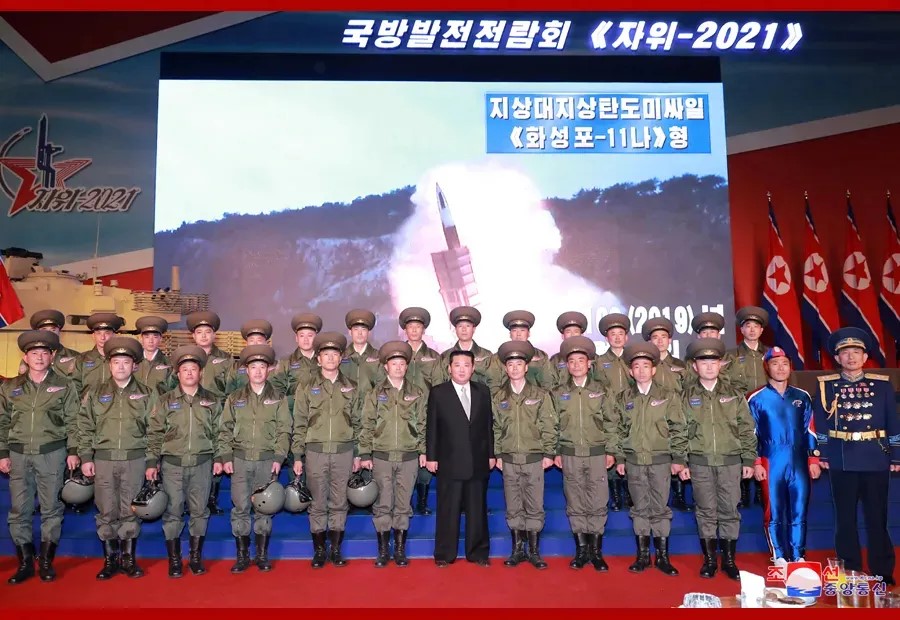During the past ten years, South Korea has grown to become a truly strategic partner for Poland. South Korea’s support in the area of the defense industry, nuclear power, infrastructure and foreign direct investment is supporting Poland’s overall capabilities as a key security player in the European Union and NATO. Picture source: Ministry of National Defence, Republic of Poland, May 30, 2022, Republic of Poland, https://www.gov.pl/web/national-defence/we-are-strengthening-military-cooperation-between-poland-and-south-korea.
Poland and South Korea: The Emerging Strategic Partnership
Prospects & Perspectives No. 64 November 11, 2022
By Paweł Paszak
War in Ukraine and the convergence of Poland’s and South Korea’s ambitions
The year 2022 will be remembered as a breakthrough point in Poland-Republic of Korea (ROK) relations. Both countries have signed contracts for the delivery of 48 FA-50 ($3 billion), 212 K9A1/K9PL Howitzers (2.4 billion), 180 K2 battle tanks ($3.37 billion) and 288 Chunmoo 239 K-MRLS. On top of that Korean KHNP was initially chosen as a partner for the construction of the second nuclear power plant in Pątnów and the Korean LG Chem has been developing in Kobeirzyce the largest EV battery factory in the world with a total investment cost of €3.1 billion. South Korea has reached the depth and breadth of cooperation with Poland that has yet been beyond the reach of the People’s Republic of China or Japan.
The Russian aggression against Ukraine turned out to be a blessing in disguise for cooperation between Warsaw and Seoul. Under Moon Jae-in’s administration, South Korea had been working diligently to join the exclusive club of top arms exporters in the world. Due to that effort, Seoul has already greatly improved its position in the global market. The country’s arms exports increased by over 176.8% during 2017-2021 enabling it to climb to the 8th position globally, based on data from Stockholm International Peace Research Institute (SIPRI). While sales to the Middle East and South-East Asia were an important foothold for the Korean defense industry, the contracts signed with Poland and the entry into the NATO arms market could be a long-term game-changer for the Korean defense industry and its global ambitions.
War just outside the border has pushed the government of the United Rights to find quick and effective solutions. The first natural step was to tighten the cooperation with the U.S. – the only partner credible and powerful enough to increase Poland’s defense and deterrence capabilities. The United States leads the enhanced Forward Presence (eFP) Battle Group in Poland and deploys a rotational Armored Brigade Combat Team under Operation Atlantic Resolve, funded through the European Deterrence Initiative. Currently, approximately 10,000 U.S. personnel are on rotation in Poland and the United States has approximately $20 billion in active government-to-government sales cases with Poland under the Foreign Military Sales (FMS) system. During the NATO Summit in Madrid President Biden also pledged that the U.S. Army V Corps Headquarters Forward Command Post, an Army garrison headquarters, and a field support battalion will be permanently stationed in Poland. While significant progress has been achieved, it soon has become clear that the U.S. defense industry was not prepared to produce the requested amount of military equipment at a rate adequate to the imminency of the military threat. Poland has decided to send large volumes of its soviet-era military stock to Ukraine where it could serve the best interest of both countries. While the decision was fully justified by strategic and moral reasons, it has depleted some of Poland’s offensive and defensive capabilities. Given the urgency of the situation, the Ministry of Defense had to find a trusted supplier capable of delivering quality equipment at a short notice to fill the void and perform a rapid technological upgrade of the Polish armed forces. Both Poland and South Korea have therefore met at a point where their strategic interest have converged with Seoul seeking to go global and Poland searching for a quick way to improve its capabilities. One may ask why Poland has not gone to the European market to establish arms producers such as France or Germany taking that the production base is seemingly closer and maybe shall be the first choice. Every major arms, energy or infrastructure procurement is a decision that lies not only on the technical specifics of the offer but also has a very strong political justification. The final choice suggests that recently difficult relations with Berlin and Paris both on the bilateral and EU level have spoken in favor of a third way that gives Warsaw a chance to build with Korea indigenous production capabilities and retain more autonomy from its Western neighbors.
The joint push for nuclear transformation
The emergence of the Poland-South Korea strategic partnership should also take into account another key aspect of the relationship between Warsaw and Seoul. While the military contracts are the first pillar, nuclear energy and the involvement of KHNP in the construction of a power plant are the second.
Poland’s Nuclear Program aims to transform the Polish energy system to become more self-reliant and profoundly cut greenhouse gas emissions in compliance with the European Green Deal and Paris Agreement targets. For South Korea, participation in Poland’s nuclear program is a great opportunity to export its nuclear technology for the first time since 2003 and enter the infrastructural market of the European Union. While Poland has been seriously considering the construction of new nuclear reactors since at least 2005, the outbreak of Russian aggression against Ukraine and the high volatility of energy prices have led to a great acceleration of decision-making processes. Following months of negotiations, on October 31, 2022, GE, a Polish state-owned energy company, ZE PAK, the largest private energy group in Poland and KHNP, a Korean state-owned energy company signed a letter of intent in Seoul to assess and analyze the potential of constructing a nuclear power-plant in Pątnów (230 km southwest of Warsaw) based on Korean APR 1400 reactor technology.
This development comes after awarding the construction of the first Nuclear Power Plant to the American Westinghouse Group. The parallel cooperation with both the U.S. and the Republic of Korea was the result of strategic calculations such as a long-term security relationship, the pricing of the offer and technology transfer. The U.S. enjoyed the advantage of being the most important security partner during the time of rising threats from Russia and Belarus and was a long-time favorite to receive the contract. Yet the relations between Warsaw and Seoul have grown stronger during the last 10 years in multiple domains and South Korea offered not only the cheapest option but also the one that included significant technology transfers. Simultaneous cooperation with both Washington and Seoul was there a wise decision that helped to deepen cooperation with two key partners and ensure that Poland could have two nuclear power plants by 2034 with considerable localized expertise and new capacity in the nuclear supply chain.
Conclusions
During the past ten years, South Korea has grown to become a truly strategic partner for Poland with considerable potential for further development. The interests and needs of both countries have aligned at a crucial juncture – with Korea looking to realize its global ambitions and reinvigorate the economy and Poland seeking to catch up with Western Europe and transform its military, industry and energy system. Korea’s industrial capacity, willingness to invest and export its technology has made it a very attractive option for Warsaw which faced increasingly difficult relations with Germany, France and the European Union under the United Right governing coalition. These developments could help establish South Korea’s position as a key exporter of defense and nuclear technology not only to developing countries but also to the European Union. South Korea’s support in the area of the defense industry, nuclear power, infrastructure and foreign direct investment is supporting Poland’s overall capabilities as a key security player in the European Union and NATO.
(Paweł Paszak is analyst in Indo Pacific Program, Institute of New Europe, Poland.)


